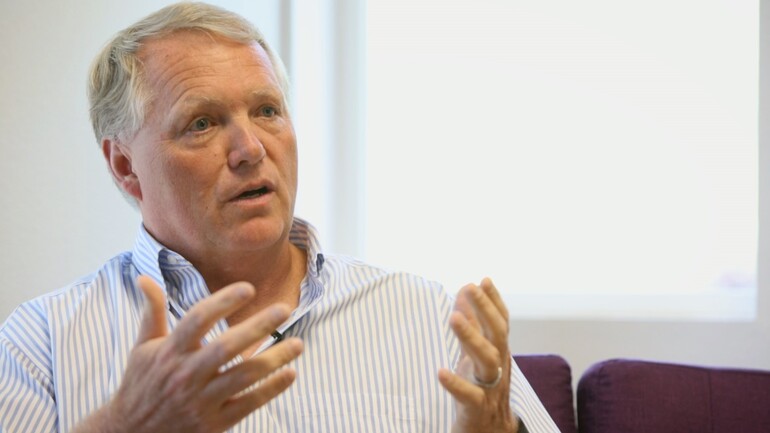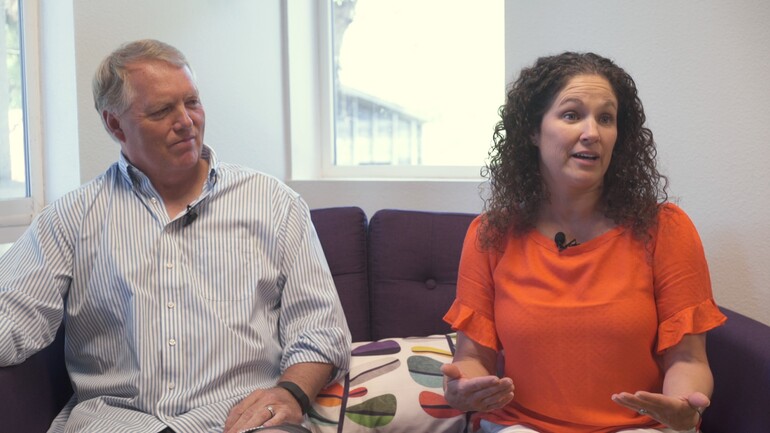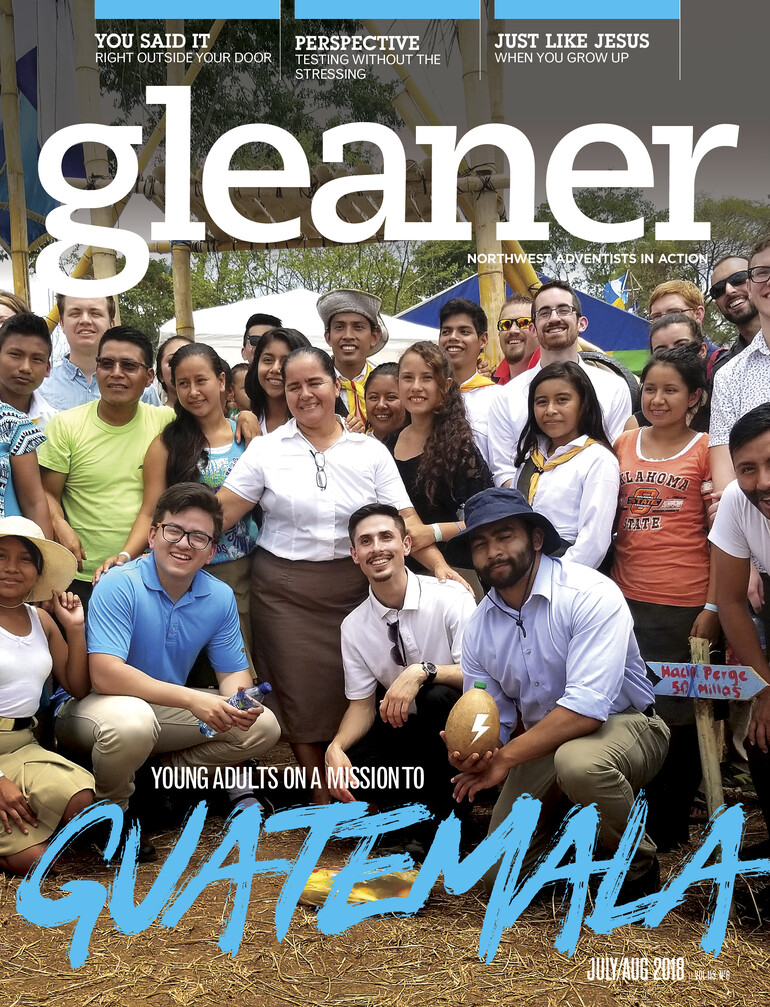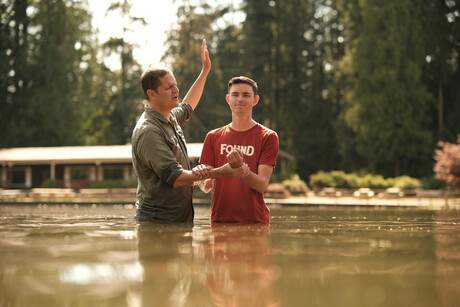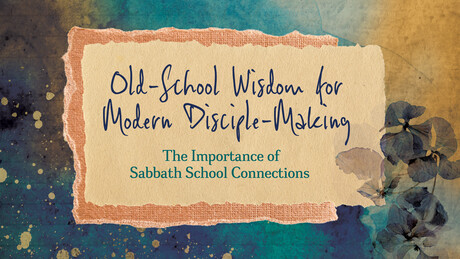EDITOR’S NOTE: Fred Cornforth, president for the Northwest chapter of Adventist Laymen’s Services and Industries (ASI NW), has a “day job” as CEO of Community Development Inc. (CDI). The CDI Group of Companies is a private, nonprofit organization specializing in real estate and community development. It has been active in the development of affordable multifamily housing for seniors and families. Cornforth's business position has enabled him to not only cast vision for ASI NW but also sponsor, through the resources of CDI, many international orphanage projects and tangible partnerships with Adventist Medical Evangelism Network (AMEN) free clinic events across the country. We recently asked his input regarding current and future opportunities for ASI collaboration with business outreach. Following are paraphrased excerpts from that interview.
GLEANER: How has your work outside the church structure enhanced your view of the potential of lay ministry?
FRED CORNFORTH: When I was pastoring at Gem State Academy and as conference youth director, I initially had a $27,000 budget for youth ministry. I suppose I should have seen it coming, but as I raised additional funds beyond that amount, church leaders decided year by year they could lower the amount provided from church funds. I think when you consider the amount of resources the lay people have, there is considerably more potential there than what the official church budget can offer. Resources can sometimes limit the way our church thinks, the way we dream — i.e. “well, we don’t have the budget for that, Fred” or “we’re going to have run this by the committee” or any number of things like that. It can really be a vision-limiter, and it's an important reason why we need to develop more business and ministry partnerships.
G: What are your early connections to ASI?
FC: Like a lot of my high school buddies in the late 1970s, I was spending my summers changing irrigation pipe and throwing hay bales. Paul Damazo spoke at our church in the Gallatin Valley [in Montana] about ASI. I was impressed with his enthusiasm and whole demeanor. He was a relatively small man, but he would say “dynamite comes in small packages.” I was personally drawn, even at that early age, to his ability to bring faith and business together. Later I went to many of the national ASI conventions up to the late 90s. After a lengthy hiatus on my part, the conference asked me to consider reconnecting more directly with ASI in the Northwest. I found that this local chapter was full of amazing and dedicated people. I’ve been active with the ASI Northwest chapter now for a little over three years. I’ve enjoyed my time as president of the chapter and see a lot of potential with ASI Northwest. I think that, wherever there’s a vision, people will go — they’ll follow that. Our chapter has a great board for that very reason.
G: From your perspective, what is the mission of ASI?
FC: How can you share Christ within your workspace? How do you convince people that their place of work is their mission field? How can you be authentic there with your own personal faith journey, honest about your own struggles, doubts and hope? Sometimes I’ve been a good example of that and other times not. I do think the purpose of the national ASI organization has evolved. It is very focused on independent, supporting ministries. I think there’s a place for those, but I also see a greater need of Christian men and women business people using it as an opportunity to share Christ every day in and through their work. How do you conduct yourself as a Christian in the midst of a litigation process, for instance? We don’t get opportunity for those critical discussions outside of a 45-minute seminar that may happen once a year.
G: So you’d like to see the ASI become much more active in facilitating business partnerships on a common mission?
FC: The ability to create more opportunities for those kind of conversations, where like-minded people can wrestle with things together, is needed. I can see groups of real estate people, attorneys, home businesses etc. — it’s really unlimited in terms of the forums you could create. These types of business people could be encouraged by each other. Anytime I get together with some who have been competitors but over the years have become friends of mine, it’s really one of those rich encounters where we each learn from the other. I wish those kinds of things could happen more often.
One of my favorite things to do when attending an ASI convention is to visit the booths. There are entrepreneurs there striving to do something in a business sense for the Lord, and I’m invigorated by their energy. By the way, the Northwest is a fertile, fertile ground — some of the strongest gifts of entrepreneurship I’ve seen internationally reside here in the Northwest. And through ASI, even though there’s this bit of dissonance between what I hope we can become and what we are, I’ve still been able to meet a number of these people.
G: Do you believe there are some here in the Northwest who can and will respond to the need for additional Christian business synergy?
FC: I think it’s essential. A lot of the entrepreneurs who helped start ASI decades ago have passed off the scene. It’s time the rest of us rekindle their spark. Just in the past few weeks, people from the Northwest have been actively working on international financial opportunities and patents, they’re making discoveries — and it’s all happening outside of what you would normally see within ASI. If we can somehow get them talking together, it will create a spark, and I believe we can see some wonderful collaborations in the future.
G: What is your connection with some of the AMEN community clinics being hosted around the country and here in the Northwest?
FC: When these clinics began to happen a few years ago, we liked what we saw and decided to help sponsor some of them within our territory. Liz Thomsen coordinates these efforts between us and AMEN. She can fill in much more than I can on how this has worked out.
Liz Thomsen: This is something we are very proud to be involved in — a very rewarding ministry. It’s a lot of work, and it takes a lot of people. Each clinic takes about eight months of preparation and organization. But when you get on site, the energy you experience from the volunteers who are coming to serve, as well as the patients who are excited to be able to have some type of service — it’s amazing.
G: What kind of stories stick with you from these events?
LT: In one of our clinics, a gentleman came late so was not able to get all the services. But he came in anyway, hoping to talk to someone. When one of our people pulled him aside, they saw he was missing a tooth in front. They found out his daughter was getting married in a couple months and that he wanted to walk her down the aisle and be able to smile unselfconsciously for the pictures.
So we went over and talked to one of the dentists who said, “Sure bring him over.” After taking a look, he told the man to stop in at his regular office, and he’d take care of him. And he did. The man got a brand-new tooth so he could walk his daughter down and smile for the camera.
One of the most important things these clinics do is take care of pressing dental needs. My brother-in-law actually died as the result of an infected tooth not getting treated in time. The importance of these clinics is amazing.
G: How do your coordination efforts on behalf of CDI and AMEN intersect with ASI NW?
FC: In the past, our ASI NW meetings were held in resort areas, so you had a group of people that were separating from the populace. Our board wanted to get a more activated, ministry-minded chapter, so we decided to take the meetings to where people are. So last year we met in downtown Boise, Idaho, and collaborated with an AMEN clinic event over the same weekend. Then we replicated that process this year in Everett, Washington. So instead of sitting around hotel ballrooms with nice, cushy chairs and expensive meals brought to us, people had their tennis shoes, jeans and volunteer shirts on. We were able to roll up our sleeves and actually do something for other people. Overall, I think it was a very positive experience.
LT: We are currently working on future project sites. Bozeman, Montana, will be a site this fall. Also we’re hoping to sponsor events in Walla Walla, Washington; Yakima, Washington; and in Alaska. In every location, it seems the most difficult professional volunteers to find are optometrists.
G: Are these AMEN clinics embraced by the civic leaders of communities in which they are held?
LT: In general they are. Some communities just throw their arms wide open. They are eager to partner alongside of us. Others have a lot more questions, such as “what are you really here for?” Of course, once we have established a reputation in a particular community, it’s so much easier because of what was previously accomplished. We’re able to more effectively say, “This is what we provided last time. Now we’d love to have you join us.”
G: Any thought of continued partnerships between Walla Walla University (WWU) and ASI Northwest?
FC: In my thinking, Walla Walla University is an underused asset. They’ve got so many good things going on campus, so we’ve developed a relationship with Dr. John McVay over the past two or three years that is paving the way for great opportunities in the future.
We’re actually sponsoring an event next spring at the Rosario Marine Station that we’re calling a “boot camp.” One week will be dedicated to helping nonprofit ministries take their game to the next level. The next week will focus on for-profit groups. It will provide an opportunity for students and other people to interact with successful entrepreneurs in accounting, social media, legal, the whole gamut. We’ll do it in groups and also one on one. We’re currently providing resources to help WWU send out care packages to student missionaries, and we’ve established a scholarship for social work, health care and business majors in hopes that some of these graduates will have a professional calling in line with our ASI mission of sharing Christ in the workplace.
G: You have additional hopes for ASI Northwest and our church members here in the future?
FC: We’ve done things a certain way for so long that it’s difficult for people to think outside of that. James Rafferty once advised me to think local, not national. That caused me to consider my own community and what we are doing to help right here.
If I could wave a magic wand, it would mean that every church might have a feeding program or a prison ministry, health classes or ongoing partnerships with AMEN clinic type of programs. I tend to emphasize “presence” over “proclamation.” Both are important, of course. But I wonder, "Where should I be when the Lord comes?" I think I ought to be caught at a soup kitchen, volunteering at a clinic, being part of the community. I think we’ve too often been more “goat” than “sheep” in the context of Matthew 25 — more anxious to be right than in doing right things on behalf of Jesus. Out of a grateful heart, when we see through the Father’s eyes and live out the sweetness of the gospel, it allows us to spend our energies toward positive things for people in the present.
These AMEN clinics are wonderful, but we’ve got dentists who are saying, “You know, I’ve decided to open my office once a week for anyone that wants to come in, that needs care.” When we show disinterested benevolence — my favorite phrase of all time — and that familiar Spirit of Prophecy passage that reminds us that wherever you see that impulse of love, you see the workings of the Holy Spirit, we begin to understand God’s method of ministry. That means we’re not so concerned about when the Second Coming will happen, as to what we can do next to help someone in need.
G: Is this something our younger demographics can identify with?
FC: I have found millennials to be very attuned to issues of social justice and need, to be super-open to learn. I’m seeing this fire in them to do something. They want that personal involvement. They don’t want to just donate to the church and pass off the challenge to a church employee. We need to get past the current divide — where so many are all about proclamation instead of practicing the presence of Jesus in our communities. We need the gospel with skin on, and it’s why I’m excited to see these little sparks of movement in that direction.



